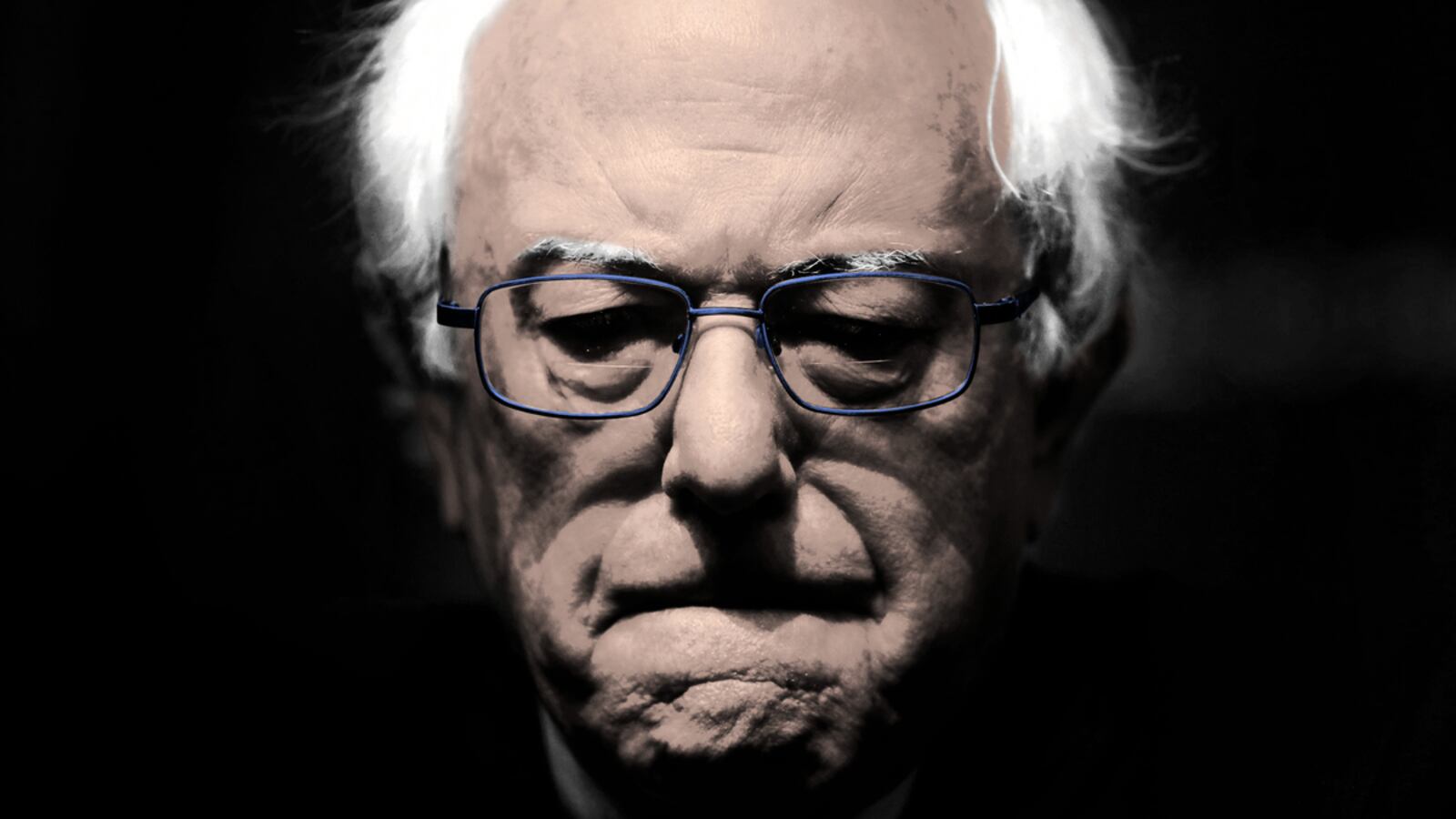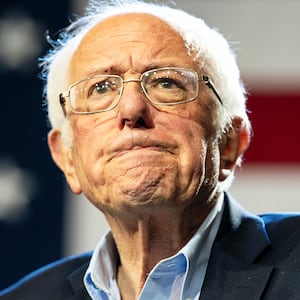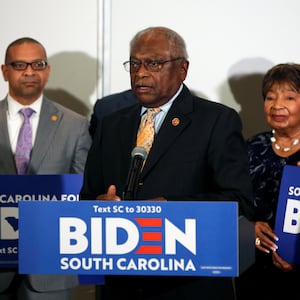It’s political lore that Howard Dean’s 2004 presidential campaign came crashing down the night he screamed into a microphone after losing the Iowa caucus. In reality, the end was clear weeks before. It was guttural, at first; a growing sense that he had to expand his coalition of supporters, followed by the realization that he couldn’t bring himself to do it.
“I was giving them something that they deeply valued, which was hope. And to pull back and become the establishment figure I knew I had to become [in order] to become president was really hard to do,” Dean said a few years back. “I had to teach them an incredibly unpleasant lesson, which is that people like me don’t win presidencies behaving like that, that you have to deal with reality that includes a whole lot of people who aren’t progressives, who aren’t nice, who aren’t good about human rights… I knew I had to make the turn. And I couldn’t do it. I just couldn’t do it.”
Sixteen years after Dean came to that epiphany, another Vermonter running for the presidency may be having a similar one of his own.
Just one week ago, Sen. Bernie Sanders (I-VT) seemed well positioned to be the Democratic Party’s presidential nominee. A popular vote win in Iowa was followed by popular vote and delegate wins in New Hampshire and Nevada—and the rest of the field appeared woefully divided among who the moderate alternative should be. By Wednesday, any perceived momentum was gone. Former Vice President Joe Biden parlayed a huge win in the South Carolina primary into a party consolidation around his candidacy and a slew of victories in critical Super Tuesday states. As the post-mortems began pouring in, Dean was left wondering whether the same elements that doomed his run were at play again.
“He believes his vision is the right vision,” Dean, who is neutral in the primary, said of Sanders. “The problem is, it's the way he approaches it which makes people nervous. I had the same problem. I was hell and fire and damnation the entire way and eventually people got nervous about it.”
In reality, the Sanders campaign is not dead. More than half the states still have to vote and the possibility remains that he could go into the 2020 convention with a pledged delegate lead and a claim to the nomination. But for that to happen, top Democrats say, he will have to alter an approach to electoral politics that he has kept consistent for nearly four decades. Rather than playing the role of insurgent, Sanders must send signals to both the party members and the traditional Democratic voters that he is willing to soften down some of his rough edges. Politics, even his backers seemed to be saying, is fundamentally a game of addition.
“I think the problem for him and others has been how to animate your base without sending the implicit message that you are not open to support or ideas from people outside your base,” said Rep. Dan Kildee (D-MI), who met with Sanders earlier in the cycle when the senator was trying to build support for his candidacy on Capitol Hill. “The only way a Democrat wins the White House is by being able to do that. This election cycle is different in one critical sense. I have heard more than I ever have before, people across the ideological spectrum are saying we have to beat Trump. I think any hint that ideology will be a more important principle than a winning strategy is problematic and I think it’s what has affected a lot of these folks.”
In interviews with campaign operatives and Democratic officials, the inability of Sanders to make “the turn”—as Dean put it—was cited repeatedly as the reason why his campaign faltered in the lead up to Super Tuesday. The campaign featured a surrogate who spoke openly about supporting a primary campaign against House Speaker Nancy Pelosi (D-CA), they touted their refusal of financial help from former New York City Mayor Michael Bloomberg in the general election, they put out tweets declaring their desire to take on the Democratic establishment alongside the Republican one, and they planned rallies in the home states of primary competitors Amy Klobuchar (D-MN) and Elizabeth Warren (D-MA).
Some of this was born from ideological consistency, some of it from electoral opportunism, some of it just pure stubbornness. But the net result was a message to Democrats: get in line or get out of the way. So too, Democratic officials said, was Sanders’ insistence that he would not compromise on Medicare for All—even after a top surrogate, Rep. Alexandria Ocasio Cortez (D-NY), said she was open to it—and his dismissal of concerns about his comments praising the literacy and health care reforms of the Castro regime in Cuba.
“He didn’t just not try to calm concerns about his candidacy,” said one top operative for a rival campaign. “He did the opposite.”
But it wasn’t just the public utterances that complicated Sanders’ trajectory. Behind the scenes, his team did little to assuage concerns. One Democratic member of Congress said that while they would hear daily from Bloomberg’s campaign and several times a week from Biden’s team, they rarely heard from Sanders. “This is a relationship business. We all are moved by our own relationships no matter what the title on the business card is,” said the member. “And personal relationships are not a Bernie strength.”
Sanders also did not make aggressive plays to elected Democrats to either support his campaign or stay neutral as the primary played out. House Majority Whip James Clyburn (D-S.C.) said the Vermont senator didn’t make a concerted effort to win his endorsement. And at least one fellow presidential candidate said Sanders made no play at all.
“When I got out, Kamala [Harris], Warren, Klobuchar, Biden’s crew, Mayor Pete’s crew, they all called and we had several conversations after about who I was going to support. But there was never anything from them that I remember,” said Rep. Tim Ryan (D-OH), who ended up endorsing Biden. “But their strategy is they are the outsiders.”
The irony, for some Democrats, is that Sanders actually has a story to tell that could assure on-the-fence voters that he’s not the radical figure that’s often portrayed. He has played a constructive role on some of the biggest pieces of legislation and rarely—if ever—scuttled the legislative deals that he now bemoans. An official close to Barack Obama said that he and Sanders have talked through the course of the primary even as Sanders has been depicted as an irritant when it came to Obama’s presidency. And one top official at the Democratic National Committee noted that Sanders worked cooperatively with the party after the 2016 election to make sure that the politicians he and his affiliated group, Our Revolution, supported ended up running under the party umbrella.
“Obama kept his own movement,” the official said of Obama’s Organizing for America. “Bernie told people to run and occupy the party. All these people who would have been green or Democratic Socialists, they joined the party. They participated.”
But Sanders has not emphasized this part of his resume. If anything, he’s stayed preternaturally focused on presenting himself as an outsider, eager for revolution more than constructiveness. And some of his congressional supporters on Wednesday bemoaned the characterization that took hold in the absence of a fuller picture.
“At the end of the day, there were people with power and a following and platform that used that all, and in 48 hours, sort of painted a very scary picture of Bernie Sanders and I think voters, half of whom made their decisions in some states at the very last minute, listen[ed] to,” said Pramila Jayapal (D-WA). “They care deeply, they’re knowledgeable, they have real fears.”
By Wednesday, there were signs that Sanders was tinkering with the message. His campaign put out a new advertisement featuring Obama speaking glowingly of the movement the Senator had built and the work he had done.
“I wanted to make it clear because there are a lot of statements about my relationship with Obama, to say that I worked with him and respect him and look forward to working with him,” Sanders said of the ad at a press conference later in the day.
For some voters, the overtures may do the trick. But for a chunk of the party, the anti-establishment candidate suddenly saddling up to the ex-president was too much to take. Sanders had his chance to soften his image. That time has passed.
“It’s absurd,” said one Obama White House veteran of the new ad.
With reporting by Sam Brodey and Hanna Trudo.



